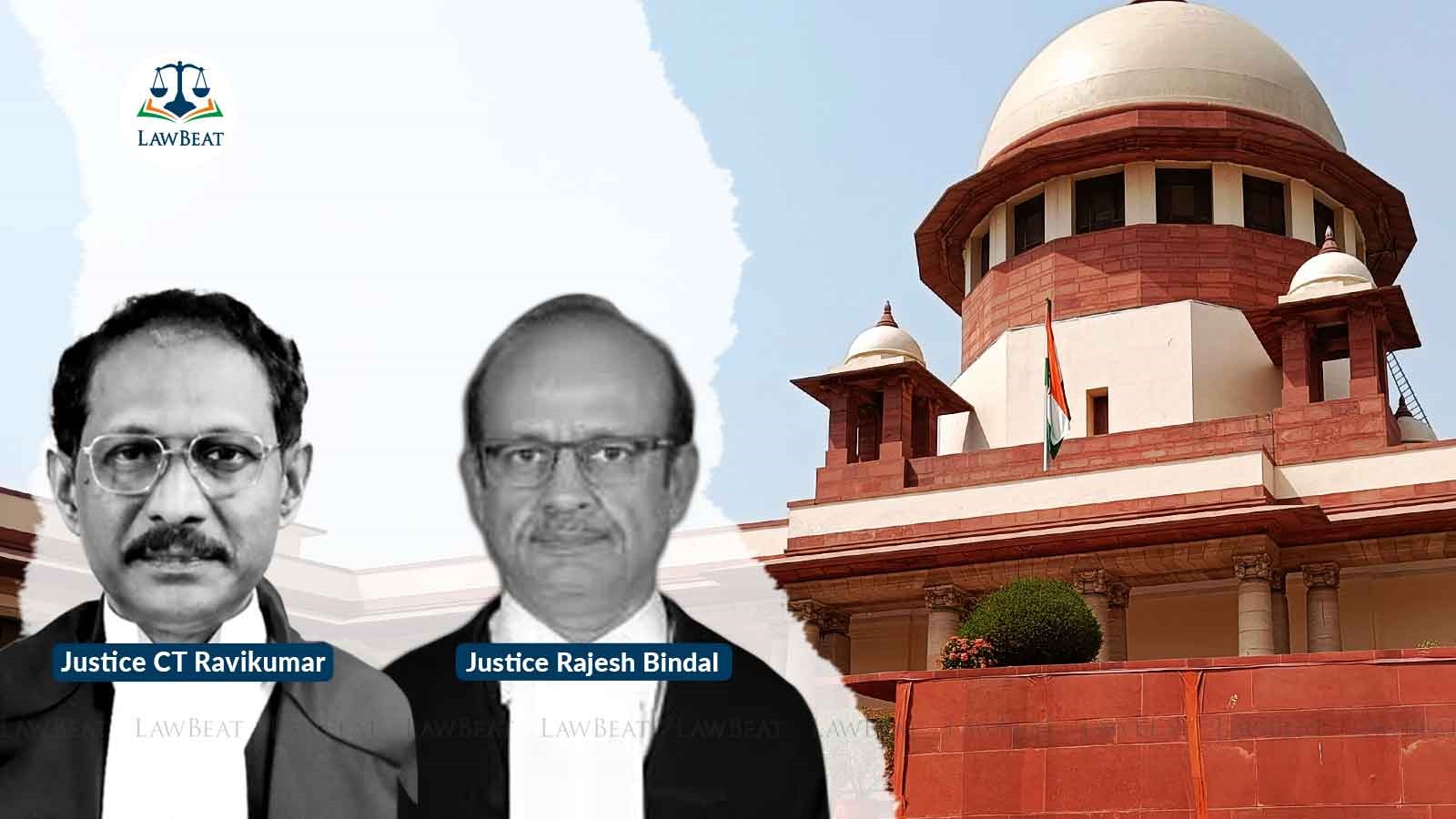'Incident may haunt victim for life,' SC sentences man to 30-yr jail for rape of 7-yr-old girl

SC bench said the incident would adversely affect the victim's life as it relied upon the decision in case of 'Shiva Kumar @ Shiva @ Shivamurthy Vs State of Karnataka' (2023) which stated, even in a case where capital punishment is not imposed or is not proposed, the Constitutional Courts can always exercise the power of imposing a modified or fixed-term sentence
The Supreme Court has on February 5, 2024 sentenced a man to 30 years imprisonment for committing rape upon a seven-year-old girl, saying the fact that he has not committed the offence brutally will not make it non-barbaric and the incident may haunt the victim for life.
A bench of Justices CT Ravikumar and Rajesh Bindal ordered the petitioner-convict Bhaggi @ Bhagirath @ Naran should not be released from jail before completion of actual sentence of 30 years, including the period undergone by him, if the trial court ordered to set off the prison term.
The court confirmed the conviction under Section 376AB of the IPC, with additional fine of Rs one lakh to be paid to the victim, while modifying the Madhya Pradesh's High Court's order which commuted the sentence from the capital punishment to life term.
"While commuting the capital sentence to life imprisonment, the High Court had lost sight of the fact that despite conviction under Section 376 (2) (i) and under Sections 3/4, Sections 5(d)/6 of the POCSO Act, no separate sentences were imposed on the petitioner for the offence under Section 3/4 and 5(m)/6 of the POCSO Act by the Trial Court, evidently, only on the ground that capital sentence is imposed on the petitioner for the offence under Section 376 AB, IPC," the bench said.
"However, it is a fact that the said aspect escaped the attention of the High Court. That apart, in terms of the provisions under Section 376 AB, IPC when a sentence of imprisonment for a term not less than 20 years which may extend upto life imprisonment is imposed, the convict is also liable suffer a sentence of fine which shall be just and reasonable to meet the medical expenses and rehabilitation of the victim which we quantify as Rupees One Lakh and the same shall be paid to the victim with respect to the conviction under Section 363, IPC. In that regard also, there is absolutely no consideration in the impugned judgment," the bench said.
In the case, the court noted the petitioner-convict was aged 40 years on the date of occurrence and the victim was then only a girl, aged 7 years. "Thus, the position is that he used a lass aged 7 years to satisfy his lust. For that the petitioner-convict took the victim to a temple, unmindful of the holiness of the place disrobed her and himself and then committed the crime," the bench said.
The court held in this case there can be no doubt regarding the requirement of deterrent punishment for the conviction under Section 376 AB, IPC.It also pointed out when once the conviction is sustained under Section 376 AB, IPC the fixed term punishment could not be for a period of less than 20 years.
"It is noted that if the victim is religious every visit to any temple may hark back to her the unfortunate, barbaric action to which she was subjected to. So also, the incident may haunt her and adversely impact in her future married life," the bench said.
It also relied upon the judgment in case of 'Shiva Kumar @ Shiva @ Shivamurthy Vs State of Karnataka' (2023) which stated, "even in a case where capital punishment is not imposed or is not proposed, the Constitutional Courts can always exercise the power of imposing a modified or fixed-term sentence by directing that a life sentence, as contemplated by “secondly” in Section 53 of the IPC, shall be of a fixed period of more than fourteen years, for example, of twenty years, thirty years and so on. The fixed punishment cannot be for a period less than 14 years in view of the mandate of Section 433A of Cr.P.C.”
In the case, a complaint was lodged on May 21, 2018 by the grandmother of the victim that the accused was kidnapped and raped by the petitioner-convict. The trial court held the convict guilty and awarded him the capital punishment.
The High Court, on appeal, commuted the sentence to life term.
Before the top court, the appellant contended the High Court had noted the manner in which the offence was not barbaric and brutal and there was no criminal antecedent. His counsel said the rigorous imprisonment for 20 years with a minimal fine will be the comeuppance.
The bench, however, said, "In the instant case, the petitioner-convict was aged 40 years on the date of occurrence and the victim was then only a girl, aged 7 years. Thus, the position is that he used a lass aged 7 years to satisfy his lust. For that the petitioner-convict took the victim to a temple, unmindful of the holiness of the place disrobed her and himself and then committed the crime. We have no hesitation to hold that the fact he had not done it brutally will not make its commission non-barbaric," the bench said.
Case Title: Bhaggi @ Bhagirath @ Naran vs. The State of Madhya Pradesh
